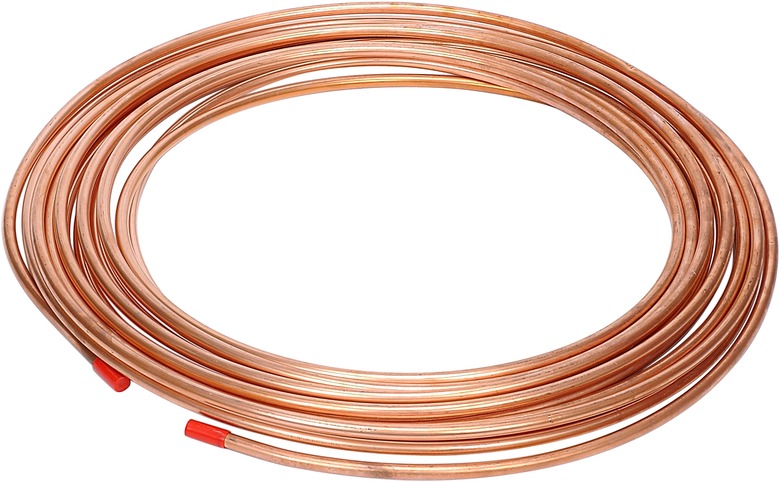Aluminum Vs. Copper Conductivity
Electrical conductivity is the measure of how well a substance conducts electricity. It is expressed as 1/(Ohms-centimeters) or mhos/cm. Mho is the name that was chosen for the inverse of Ohms.
Physical Descriptions
Physical Descriptions
Copper is a soft and malleable metal with a bright gold to a dull brown color. Aluminum is a silver-colored metal that is lighter and stronger than copper.
Conductivity
Conductivity
The two metals are close on the scale of conductivity, with copper having the more desirable characteristic. The conductivity of copper is about 0.6 megamho/cm while that of aluminum is about 0.4 megamho/cm.
Wire Resistance
Wire Resistance
A one-meter long wire with a cross section of one square millimeter has a resistance of 1.7 milliohms (.0017 Ohm) if it is made of copper, and 2.5 milliohms if it is aluminum.
Use in Wiring
Use in Wiring
Due to its excellent electrical properties, copper is used extensively for electrical wiring. In power distribution, aluminum is sometimes used instead of copper. Aluminum costs and weighs only about one third as much as copper.
Safety of Aluminum Wiring
Safety of Aluminum Wiring
Aluminum was once used in home wiring but it corrodes easily, which can lead to high resistance and heat buildup at connection points. The residential use of aluminum wire was discontinued in the 1970's due to this hazard.
References
Cite This Article
MLA
Patton, Don. "Aluminum Vs. Copper Conductivity" sciencing.com, https://www.sciencing.com/aluminum-vs-copper-conductivity-5829267/. 24 April 2017.
APA
Patton, Don. (2017, April 24). Aluminum Vs. Copper Conductivity. sciencing.com. Retrieved from https://www.sciencing.com/aluminum-vs-copper-conductivity-5829267/
Chicago
Patton, Don. Aluminum Vs. Copper Conductivity last modified March 24, 2022. https://www.sciencing.com/aluminum-vs-copper-conductivity-5829267/
